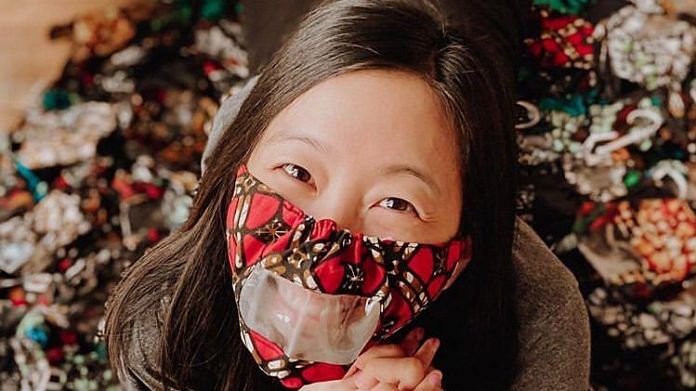Faces half obscured with plain pale blue or colourful fabric have become a familiar sight. On streets, in shops and on public transport, wearing masks has become compulsory in many countries.
The live-saving potential of face coverings is becoming more widely researched – but every mask presents a communication challenge for someone who is deaf or hard of hearing.
“If they can’t hear and they can’t see your lips moving, then they don’t know that they’re being addressed,” says Tiffany Yu, CEO & Founder of Diversability.
More than 5% of the world’s population is deaf or hard of hearing, according to the World Health Organization – and by 2050, it’s estimated 900 million people will have hearing-related disabilities.
Yu, a World Economic Forum Global Shaper, wants to promote the wearing of masks with see-through windows that allow people to read lips. She has set up #Masks4Disability – an initiative to distribute these masks across the United States for free.
Hundreds of masks have already been given out – and now the idea is catching on in places like Sri Lanka too.
Here she explains how it came about and why more accessible masks benefit everyone.
We’re providing face masks for disabled people in the US who still need them: https://t.co/8MFBHK9o5R
(Thanks https://t.co/3VPgmtmUJz for our initial batch of donated masks.)#WeAreEssential #Masks4Disability #WearAMask #NoBodyIsDisposable pic.twitter.com/S7jewplfC2
— Tiffany Yu (she/her) (@ImTiffanyYu) May 26, 2020
Where did the idea come from?
Tiffany Yu: The Forum’s Equity and Inclusion Steering Committee was hosting a webinar on COVID-19 response, and we had breakout groups related to different different types of communities that were impacted. I started hearing a lot of messages around the fact that masks weren’t accessible.
There are inequities that are presented by current N95 masks or current cloth coverings, because a lot of people who are deaf or hard of hearing need to be able to see facial expressions or read lips in their communication.
It made me realize that a lot of large cities like Chicago, San Francisco and New York have launched mutual aid efforts during COVID-19. But what about the smaller cities where you don’t have access to a mutual aid network? And some people who are disabled may prefer not to have to go out and collect masks.
So that’s why we decided the best way to do this would be to ship them. We partnered with a sustainable fashion brand in Uganda named Kimuli Fashionability to distribute these windowed facemasks to anyone in the US.
How do accessibility solutions benefit us all?
This is one of the things I try and highlight in my work: when you design things for people with disabilities, you actually design things that are better for everybody.
Mainly, these masks are for people who are deaf or hard of hearing, who rely on being able to see your lips moving so they know they’re being addressed. But they’re helpful for everyone. That is at the root of inclusive design. Windowed masks let others know that you are smiling or talking to you, even if they can hear well.
It’s the little things that matter right now, when we’re not as social as we used to be, like being able to go out and smile at someone, not just through your eyes, but also through being able to see your mouth.
What inspired you to set up Diversability?
I was involved in a car accident as a kid where my Dad, who was driving, unfortunately passed away. It was a single vehicle car accident. And I acquired a spinal cord injury – known as a brachial plexus injury – that would end up paralyzing one of my arms.
Growing up, I just felt like I didn’t really have support. And part of the reason why I started my organization was really wanting to root myself in a community.
Once I rooted myself in a disability community, I became really proud of my disability identity. But what it also made me realize was that I wanted to use whatever power and privilege I had to fight for more disability equity and more disability justice.
What’s next?
We are just planning to continue shipping out as many masks as we can in the US. We will ship out masks until we have no more.
Other cities and countries are interested too – for example, in Colombo, Sri Lanka a Global Shaper is looking to do something similar. I’ve had requests through from other people who want to start something similar in Uganda.
I want to spread awareness that our current mask culture does create inequities.
A windowed mask is better for people who are deaf or hard of hearing, but also better for everyone.
This article was republished from the World Economic Forum.
Also read: Anti-mask group gives ‘wake-up call’ to boycott masks, says it’s a sign of slavery



